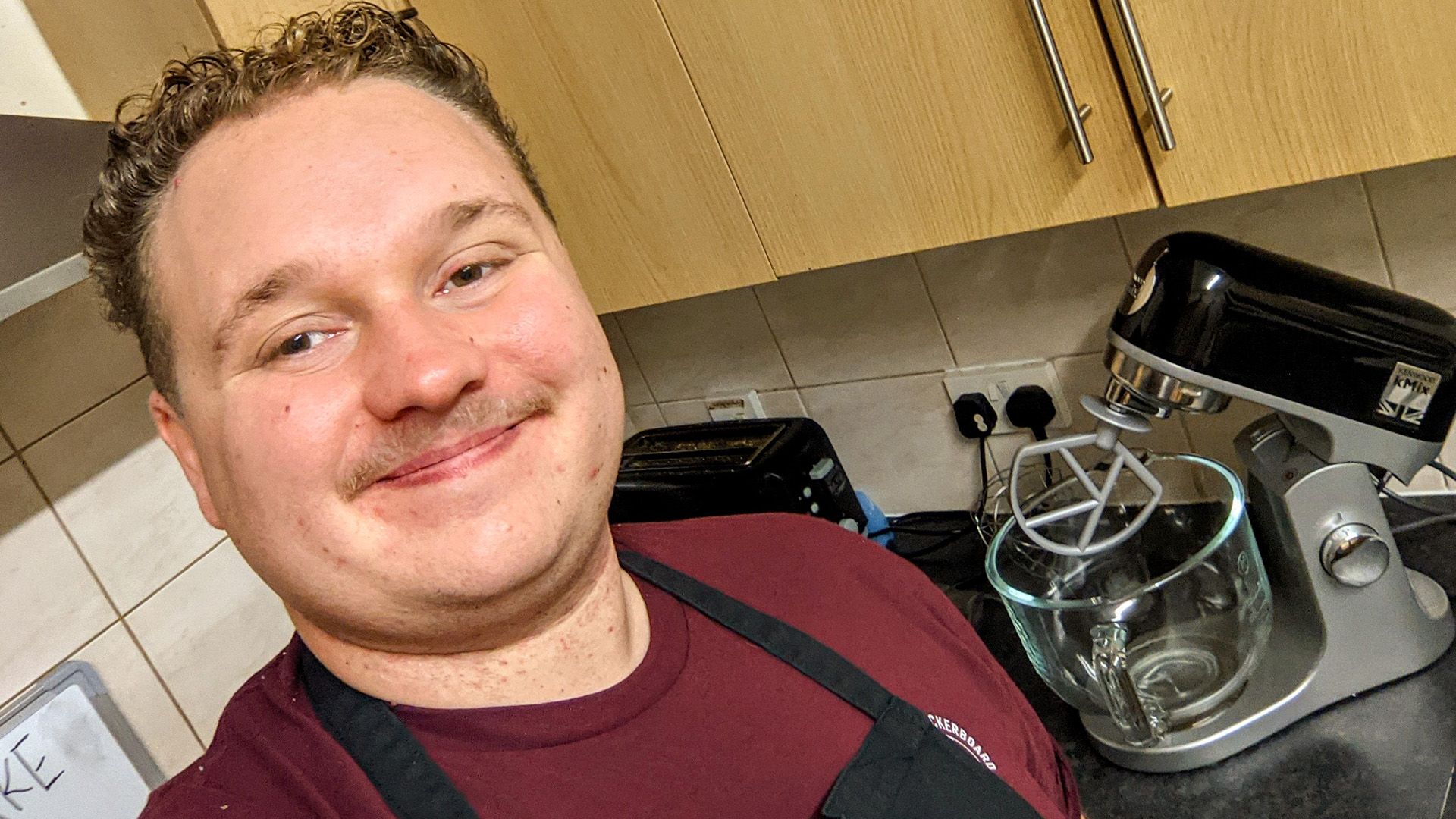

Jake’s story: Baking for the Bros
I wanted to share my story to give people that push to get the mental health support they need and to also begin to check up on their friends and family when they notice something different.
I began my Movember journey in 2016 when encouraged to raise money for the charity through my rugby team at the time, NOC Sharks RFC. During my most recent Movember, I started an event called Baking for the Bros, baking cakes for 24hrs straight, streaming the whole event live. The event made an incredible £1160 and was covered by the local news and radio. This year my goal is to make 100 cakes in 24hrs and hopefully, raise as much money as we did last year.
" The simplest advice I can give to those struggling with mental health issues like I have, is to talk about it with those around them "
I have suffered from depression, self-hate, anxiety and have also self-harmed. I am now in a much better place than I was a few years ago when this story takes place and I owe that to my friends and family as well as the local charity that allowed me to get therapy.
It's worth noting that I still go through phases of depression, but I think that is a part of life and I now have the coping mechanisms to know when I need to talk and where I can get help if things get worse. I also no longer self-harm and believe I've left that part of me behind forever.
My worst period began when entering my second year of university. I have a habit of helping other people with their mental health struggles and not opening up myself. I spent most of my first year of university making some amazing friends, but my romantic life was almost non-existent. I'm not sure at what point the self-harm started. It was related to me getting home drunk and alone. Often blacking out and realizing that I'd tried to hurt myself. Initially, I was embarrassed telling myself that it was a one-off and that I needed to “man up” and deal with these emotions myself. The problem was my social life revolved around drinking. I played on a rugby team and knew that if I stopped going on socials people would ask why and I didn't want to admit to my problem. Also removing myself from my social life wasn't the solution either, as I eventually learned it's better to face these things with friends and a social life is a positive influence on your life.
I had family struggles, my nan passed away during my exam season, I failed 2 modules and everything felt like it was just getting worse. I was too stubborn to ask the university for special circumstances on those exams because I didn't want to admit that I was struggling.
These factors made the self-harm worse. It had become almost an addiction. It then got to the stage where I couldn't hide the pain anymore. One night my housemate found me after a particularly bad session. Instead of running away or hating me as I had feared, they helped me and looked after me. The next day they started to talk to me about what was going on.
I went and began getting help. Initially, it didn't work, it took months of going around the system and trying to get consistent counselling. Although I found opening up to people I trusted took the pressure off. It made it easier for me to take the time I needed and having people check in on me helped the situation. Eventually, I opened up to my family and my amazing mum managed to get me a large chunk of counselling through a charity group near my home town.
A combination of techniques managed to break the cycle and I've now been self-harm free for 3.5 years.
Being proactive about mental health is a big part of the solution. I also found that sometimes you have to give yourself time to process this, treat it like a cold and give yourself time to get through it. Part of the problem is overcoming the stigma around mental health; therapy and asking for help should be normalized, and men should be allowed to feel vulnerable when they need to. The simplest advice I can give to those struggling with mental health issues is to talk about it with those around them. It's often surprising how many people in your life are going through or have been through similar issues. It isn't a weakness to talk about the things you're going through, opening up is often the bravest thing you can do.
If you, or someone you know, is feeling low, don’t hesitate to reach out for support using these local support resources.
To speak with someone immediately, call The Samaritans on 116 123 or message the Shout text line on 85258.
If you’re ever worried that someone’s life is in immediate danger, call 999 or go directly to emergency services.